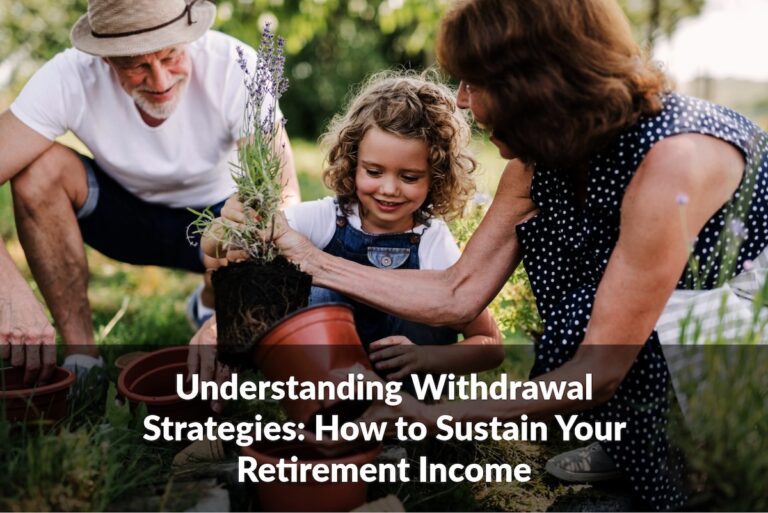FINANCIAL TIPS FOR THOSE WHO JUGGLE CARING FOR AGING PARENTS WHILE RAISING KIDS
If you’re part of the Sandwich Generation, you or someone you know are likely juggling the tasks of caring for aging parents and raising kids at the same time. This can be a Herculean feat, and you likely feel as if there’s never enough time, money, or energy to go around for all those depending on you, let alone time or resources for your own needs. This can seem especially so when it comes to having to manage finances for two generations on top of your own.
Though you may have conflicting feelings or struggle with guilt, it’s important to be sure that you’re focusing on your own financial needs, especially when it comes to retirement planning. It can feel impossible but, with discipline and planning, you can protect your retirement in a way that will allow you to launch your kids into a more secure adulthood and continue supporting your parents, too.
Here’s how you can better protect your retirement if you’re a member of the Sandwich Generation.
Prioritize Your Retirement Savings
As a parent, it’s normal to want to sacrifice things for your children to have a better life. However, your retirement savings should get priority ahead of putting money into any college savings funds. After all, there are loans available for your children to help cover education costs, but you can’t take out a loan to help you pay for retirement.
The decision to prioritize your retirement savings gets more difficult when held against the responsibility of paying for long-term care for your parents. Though it may feel heartless to put your savings first, it’s a crucial step if you don’t want to pass money problems from one generation to the next. Missing out on putting away money for your retirement when you’re in your 40’s and 50’s means that you’re missing out on compounding interest and long-term growth – all things that can make a huge impact on your nest egg. When you prioritize your retirement plans, you’re ensuring that your children won’t have to worry about carrying the brunt of your financial burdens as you age.
A great way to help cover the costs of your parents’ care without dipping into your own pocket is to use their own assets for as long as they last. By doing so, you’ll be able to make the most of programs such as Medicaid as well as allowing you better protection for your future.
SEE ALSO: HABITS OF CHAMPIONS
Practice Clear Communication
One of the biggest stressors of being in the Sandwich Generation is feeling as if you’re carrying the financial burdens of everyone without any help. It can seem as if you’re expected to do it all for your kids and your parents, while also taking care of yourself. If you make a mistake, you’ll be letting down people you love. But here’s the thing: you can’t do it all. It’s crazy to expect perfection from yourself and, chances are, your family isn’t expecting perfection either. The key to relieving yourself of some of this stress is clear communication and boundaries.
Talk with your family about what they can expect from you and what you expect from them. This conversation will be fairly easy to do with your children. Let them know how they can help around the house, and how you’re planning on helping them tackle big financial hurdles such as college expenses or moving out. This will help your children know what finances they’re going to be responsible for so that they can be better prepared come graduation.
When it comes to talking with your parents about expectations and boundaries, things can get a little tenser. This conversation will likely involve the nuances of their finances, how much they saved, how much debt they have, what their expenses are, and more. For your parents, this conversation can feel awkward and uncomfortable, as they may feel embarrassed about where they are financially or reticent to recognize that they’re aging and becoming dependent on their children.
No matter how uncomfortable, however, this conversation with your parents is necessary. Knowing how much money your parents have, where it is, and what their future plans are will help you make better money decisions for them should anything unexpected happen. Knowing their financial reality will also help you better protect them from making any big mistakes with investments or falling for any scams they may encounter.
Buy Insurance
Having two generations of people depending on your income means that, should anything happen to you, you’re going to have to dip into your savings or retirement funds to stay afloat. One way to protect yourself against the unexpected is to make sure you have sufficient disability income insurance coverage. It may seem superfluous, but the Council for Disability Awareness reports that nearly one in four workers will be out of work for at least a year due to a disabling condition. Since you have so many people dependent on your income, having safeguards in place should anything happen to you will make all the difference.
Another way to protect your financial stability is to buy life insurance. When it comes to life insurance, the general guideline is that, if there is someone dependent on your income, you should probably have a policy in place. If you’re supporting both your children and your parents, you’ll want the security of a life insurance policy to ensure your family’s needs will be covered. It’s also a good idea to talk to your parents about taking out life insurance for them, too, especially if you’re using their assets to cover their living costs as they age. A life insurance policy can be a savvy way to ensure they leave some inheritance behind for you and your children.
SEE ALSO: FINANCIAL PLANNING STRATEGIES FOR THOSE CARING FOR CHILDREN AND AGING PARENTS
There is an abundance of options out there for you to choose from when it comes to life insurance, so be sure to do your research and talk to experts whom you can trust. Some factors you should be considering are how much you expect it to cost to raise your children and put them through college, how much long-term care and health care costs you think your parents will require, as well as any assets you want to protect or debt you want to pay off. Sitting down with a financial advisor could be a useful tool in determining how much insurance you and your parents will need for your unique situation. It may seem like a lot, but life insurance policies can be an affordable and efficient way to know that your family will be protected no matter what happens.
Educate Yourself on Social Security and Medicare
We make our best decisions when we are coming from an informed position. So, knowing the details of how Social Security, Medicare, and other programs work will help you maximize the benefits they offer. There are a number of misconceptions, myths, and misunderstandings about these programs that masquerade as facts and could lead to making decisions that aren’t in your or your parent’s best interests. The best way to ensure that you’re making the best financial decisions possible and not leaving any money on the table is to know exactly what your parents are entitled to and when.
Benefits.gov is a great online resource to help you and your parents find federal benefits that they may be eligible for. Additionally, creating a my Social Security Account will provide you with a personalized toolkit to help you stay informed about your Social Security benefits, such as estimates of future benefits based on your lifetime earnings, which will help you be better prepared for your own retirement.
Final Thoughts
Taking care of parents and children simultaneously can be emotionally, mentally, and financially exhausting. Don’t compound the stress by thinking you have to make all of the financial decisions by yourself. Make sure you ask for help. Other family members may have resources to help you shoulder the burden of financial or caregiving support, and experienced friends who may be in similar positions might have great resources that they can direct you towards.
It might also behoove you to sit down with a financial advisor who can help you navigate and make sense of your financial position. They’ll be able to help you find the best way to prioritize your retirement savings while preserving your assets, helping your parents make the most of their twilight years, and setting your kids up for
Securities offered through Triad Advisors, LLC, member FINRA/SPIC. Advisory services offered through TriCapital Wealth Management, Inc. TriCapital Wealth Management, Inc. is not affiliated with Triad Advisors, LLC.




